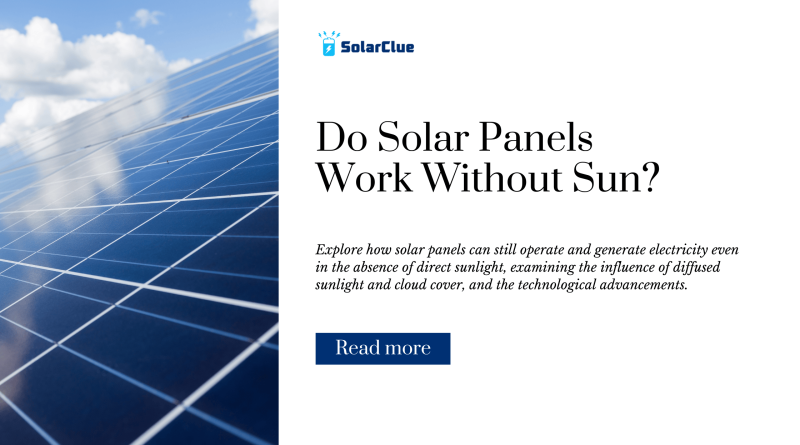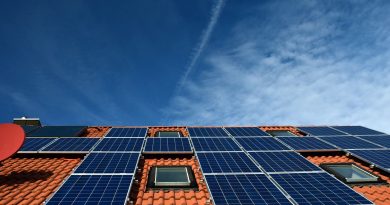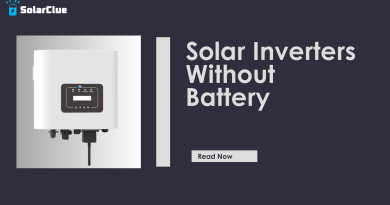Do Solar Panels Work Without Sun?
The common assumption is that solar panels need direct sunlight to function effectively. However, the reality is more complex and encouraging. This blog post explores how solar panels can still operate and generate electricity even in the absence of direct sunlight, examining the influence of diffused sunlight and cloud cover, and the technological advancements enhancing their efficiency in diverse conditions.
Table of Contents
- 1 The Science Behind Solar Panel Energy Production
- 1.1 Impact of Direct vs. Indirect Sunlight
- 1.2 The Role of Diffused Sunlight in Generating Electricity
- 1.3 Solar Panel Efficiency in Cloudy Conditions
- 1.4 Benefits of Battery Storage for Cloudy Days
- 1.5 Common Misconceptions About Solar Panels and Sunlight
- 1.6 Solar Panel Functionality in Various Light Conditions
- 1.7 FAQ
The Science Behind Solar Panel Energy Production
Solar panels convert light into electricity using photovoltaic (PV) cells. These cells generate an electric current when exposed to light photons, regardless of whether the light is direct or indirect. This means that solar panels do not necessarily need direct sunlight to produce energy but can also function with diffused light.
Impact of Direct vs. Indirect Sunlight
While direct sunlight provides the ideal conditions for maximum energy production, solar panels can still function with indirect light. The efficiency drops in indirect light conditions, but energy production does not cease.
The Role of Diffused Sunlight in Generating Electricity
Diffused sunlight, which occurs on cloudy or overcast days, can still contribute to electricity generation. The PV cells in solar panels can capture scattered light photons to produce power, albeit at reduced efficiency.
Solar Panel Efficiency in Cloudy Conditions
The efficiency of solar panels in cloudy conditions varies but typically ranges from 10% to 25% less effective than on clear, sunny days. Advances in solar panel technology are improving their performance in such conditions.
Benefits of Battery Storage for Cloudy Days
Battery storage systems play a crucial role in maintaining energy supply during periods of reduced sunlight. By storing excess energy produced during sunny periods, these batteries can provide a continuous power supply, mitigating the impact of cloudy days.
Common Misconceptions About Solar Panels and Sunlight
One major misconception is that solar panels are ineffective without direct sunlight. As discussed, panels can still operate in less-than-ideal light conditions, proving their versatility and utility in various climates.
Case Studies of Successful Solar Panel Installations in Regions with Limited Sunlight
- Germany: Despite its cloudy climate, Germany is a world leader in solar energy due to effective use of diffused sunlight.
- Seattle, USA: Known for its rainy, overcast weather, Seattle has numerous successful solar installations, supported by modern technology and state incentives.
The Future of Solar Technology and Its Ability to Harness Energy in Various Conditions
Ongoing advancements in solar technology are focused on increasing the efficiency of panels in low-light conditions. Innovations such as bifacial panels, which absorb light from both sides, and enhanced spectral response ranges are promising developments.
Solar Panel Functionality in Various Light Conditions
| Condition | Efficiency | Technology Utilized | Notes |
|---|---|---|---|
| Direct Sunlight | High | Standard monocrystalline or polycrystalline | Optimal conditions for maximum power output. |
| Indirect Light | Moderate | Thin-film panels, enhanced spectral response | Reduced efficiency but still capable of producing electricity. |
| Cloudy Conditions | Low to Moderate | Bifacial panels, advanced photovoltaic cells | Performance depends on the density of the cloud cover. |
| Dawn/Dusk | Low | Advanced photovoltaic cells | Minimal but non-zero energy production. |
Understanding how solar panels work in various lighting conditions helps debunk myths and better prepare for efficient solar energy use, regardless of local weather patterns.
Here at SolarClue®, we offer a smart, practical, and “beautiful” solution. You will be answered for all the questions related to Solar.
We provide all kinds of brands that are the Best Solar panels in India.
If you are the one who is planning for the solar power system. Don’t hesitate to contact our team!
Looking forward to empowering you with solar energy, just like hundreds of our other clients!
FAQ
1: Can solar panels generate power during rainy days?
A: Yes, solar panels can generate power on rainy days through the diffused sunlight available, although the efficiency is lower than on sunny days.
2: What is the best type of solar panel for cloudy climates?
A: Thin-film solar panels and those designed with advanced photovoltaic technology are better suited for cloudy conditions due to their broader light absorption spectrum.
3: How much power do solar panels produce on cloudy days compared to sunny days?
A: On cloudy days, solar panels can produce about 10% to 25% less energy than on sunny days, depending on the thickness of the cloud cover and the type of panels used.



